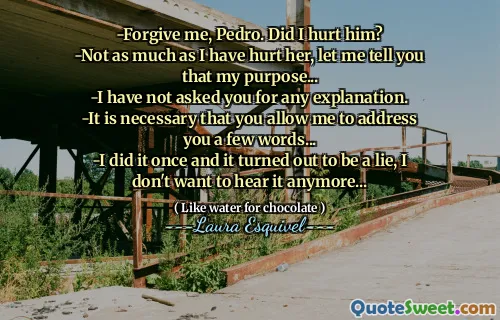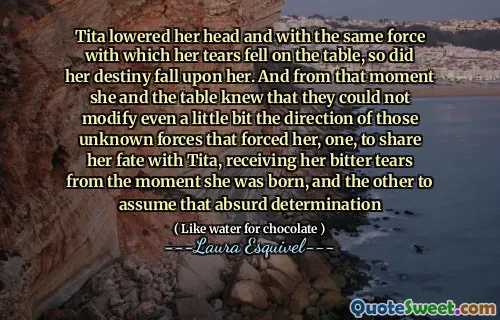"Like Water for Chocolate," written by Laura Esquivel, is a poignant tale that intertwines the themes of love, food, and magical realism. Set in Mexico during the early 20th century, the story revolves around Tita, a young woman who expresses her emotions through the dishes she prepares. According to family tradition, Tita is forbidden to marry, as she must care for her mother. This oppressive environment influences her relationship with Pedro, a man she loves, who ultimately marries her sister Rosaura instead.
As Tita navigates her household duties and the constraints of her family, each recipe she cooks becomes a reflection of her thoughts and feelings, often affecting those who consume her food in magical ways. The novel illustrates how Tita’s suppressed desires and emotions manifest in the meals she prepares, serving as a metaphor for her struggle against the norms of her family and society. The evocative descriptions of food and cooking highlight the deep connection between culinary art and emotional expression.
Ultimately, "Like Water for Chocolate" celebrates the power of love, the significance of tradition, and the importance of following one's true desires. Through Tita’s journey, readers witness her growth from a repressed daughter to a woman who embraces her individuality. Esquivel’s novel is a rich blend of storytelling, cultural heritage, and the symbolic use of food, making it an enduring and beloved piece of literature that continues to resonate with audiences today.
More »
Today Birthdays
1970 -
Ted Cruz
1869 -
Edwin Arlington Robinson
1823 -
Thomas Wentworth Higginson
1912 -
Lady Bird Johnson
1858 -
Giacomo Puccini
1862 -
Connie Mack
1957 -
Susan Powter
1989 -
Jordin Sparks
1949 -
Ray Guy
1974 -
Heather Donahue
1949 -
Robin Gibb
1948 -
Steve Garvey
1962 -
Ralph Fiennes
1856 -
Frank B. Kellogg
1943 -
Paul Wolfowitz
1936 -
Hector Elizondo
1993 -
Meghan Trainor
1975 -
Omar Dorsey
1960 -
Jean-Michel Basquiat
1908 -
Max Bill
1948 -
Martin Yan
1869 -
Bainbridge Colby
1993 -
Gabriel Medina
1889 -
B. Carroll Reece
1831 -
Hale White
1903 -
Haldan Keffer Hartline
1998 -
G. Hannelius





